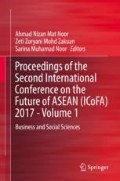Abstract
Field trips may best be viewed as a form of short-term experiential learning offering meaningful experiences that play an extremely crucial role in successful educational initiatives. The study of field trips has largely been overlooked by education-related literature that generally focuses on classroom, text-based, and, more recently, computer- or electronic media-based learning. Within the tourism context, only 2% of the literature is associated with education and training. In the light of this literature gap, this study examines the perceived values of field trips through the eyes of tourism students. The sample was a group of tourism-major students who recently went on an international field trip in partial fulfillment of the course requirements. Online survey was employed to collect data which were then analyzed using both descriptives and content analysis. The findings were in accord with those of previous studies, promoting the five key values of field trips. The study confirmed the importance of incorporating field trips in the curriculum not for the sole purpose of knowledge acquisition or enhancement but also for students’ personal and social growth.
Access this chapter
Tax calculation will be finalised at checkout
Purchases are for personal use only
References
Ballantyne, R., Packer, J., & Axelsen, M. (2009). Trends in tourism research. Annals Tourism Research, 36(1), 149–152. https://doi.org/10.1016/j.annals.2008.07.001.
Bamberger, Y., & Tal, T. (2008). Multiple outcomes of class visits to natural history museums: The students’ view. Journal of Science Education and Technology, 17, 274–284. https://doi.org/10.1007/s10956-008-9097-3.
Boud, D., Cohen, R., & Sampson, J. (1999). Peer learning and assessment. Assessment Evaluation Higher Education, 24(4), 413–426.
Goh, E. (2011). The value and benefits of field trips in tourism and hospitality education. Higher Learning Research Communications, 1(1), 60–70. https://doi.org/10.18870/hlrc.v1i1.18.
Grauerholz, E., & Copenhaver, S. (1994). When the personal becomes problematic: The ethics of using experiential teaching methods. Teaching Sociology, 22, 319–327.
Greene, J. P., Kisida, B., & Bowen, D. H. (2014). The educational value of field trips. Education Next, 2014, 78–86.
Kern, E. L., & Carpenter, J. R. (1984). Enhancement of student values, interests and attitudes in earth science through a field-oriented approach. Journal of Geological Education, 32, 299–305.
Larsen, C., Walsh, C., Almond, N., & Myers, C. (2016). The ‘real value’ of field trips in the early weeks of higher education: The student perspective. Educational Studies. https://doi.org/10.1080/03055698.2016.1245604.
Mongkhonvanit, J. (2007). Field trips as experiential education: A case study of Siam University’s professional doctoral program in educational administration. International Forum Teaching Studies, 3(3), 62–79.
Rennie, L. J., & Johnston, D. J. (2004). The nature of learning and its implications for research on learning from museums. Science Education, 88(S1), S4–S16. https://doi.org/10.1002/sce.20017.
Riegel, U., & Kindermann, K. (2016). Why leave the classroom? How field trips to the church affect cognitive learning outcomes. Learning and Instruction, 41, 106–114.
Scarce, R. (1997). Field trips as short-term experiential education. Teaching Sociology, 25(3), 219–226.
Sorrentino, A. V., & Bell, P. E. (1970). A comparison of attributed values with empirically determined values of secondary school science field trips. Science Education, 54(3), 233–236.
Williams, K. C., & Williams, C. C. (2011). Five key ingredients for improving student motivation. Research Higher Education Journal, 12, 1–23 http://www.aabri.com/manuscripts/11834.pdf.
Wright, M. C. (2000). Getting more out of less: The benefits of short-term experiential learning in undergraduate sociology courses. Teaching Sociology, 28(2), 116–126.
Author information
Authors and Affiliations
Corresponding author
Editor information
Editors and Affiliations
Rights and permissions
Copyright information
© 2019 Springer Nature Singapore Pte Ltd.
About this paper
Cite this paper
Bidder, C., Kibat, S.A., Johnny, C. (2019). Tourism Education: Students’ Perceived Values of Field Trips. In: Mat Noor, A., Mohd Zakuan, Z., Muhamad Noor, S. (eds) Proceedings of the Second International Conference on the Future of ASEAN (ICoFA) 2017 - Volume 1. Springer, Singapore. https://doi.org/10.1007/978-981-10-8730-1_14
Download citation
DOI: https://doi.org/10.1007/978-981-10-8730-1_14
Published:
Publisher Name: Springer, Singapore
Print ISBN: 978-981-10-8729-5
Online ISBN: 978-981-10-8730-1
eBook Packages: Political Science and International StudiesPolitical Science and International Studies (R0)

